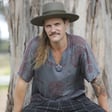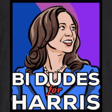
Reclaiming Your Narrative with Court Vox
Two Bi Guys is now sponsored by Zencastr! You can get 30% off Zencastr for 3 months with promo code: twobiguys -- or just click this link: https://zencastr.com/pricing?coupon=twobiguys&fpr=ex42o. Start recording your own podcast or meetings today!
We are also sponsored by Manscaped! Get 20% OFF @manscaped + Free Shipping with promo code TWOBIGUYS at MANSCAPED.com!
Follow Court Vox on Instagram: https://www.instagram.com/courtvox/?hl=en
The Body Vox: https://thebodyvox.com/
Squirm: (Objects for Sensory Experiences) www.EverybodySquirm.com
Two Bi Guys is produced and edited by Rob Cohen
Created by Rob Cohen and Alex Boyd
Logo art by Kaitlin Weinman
Music by Ross Mintzer
We are supported by The Gotham
We've talked a lot about fluidity among straight-identified people in the past -- this season, we're interviewing multiple gay-identified men who experience sexual fluidity or who are breaking down the gender binary within the gay community. This week, we chatted with Court Vox, a somatic wellness coach and surrogate intimacy partner, who identifies as queer in addition to gay. We discussed the fluidity that has long-existed in parts of the gay community, why queer people are often most attracted to other queer people, what it's like to be a "surrogate partner" and work with clients on practicing intimacy, how to explore pleasure in your body in nuanced ways and without the pressure to "perform", how accepting yourself and your desires allows you to show up for your partner(s), and how to break free from the narratives that we're taught are acceptable and reclaim your own authentic narrative. And remember to always ask for consent before peeing in someone's Cheerios!



















